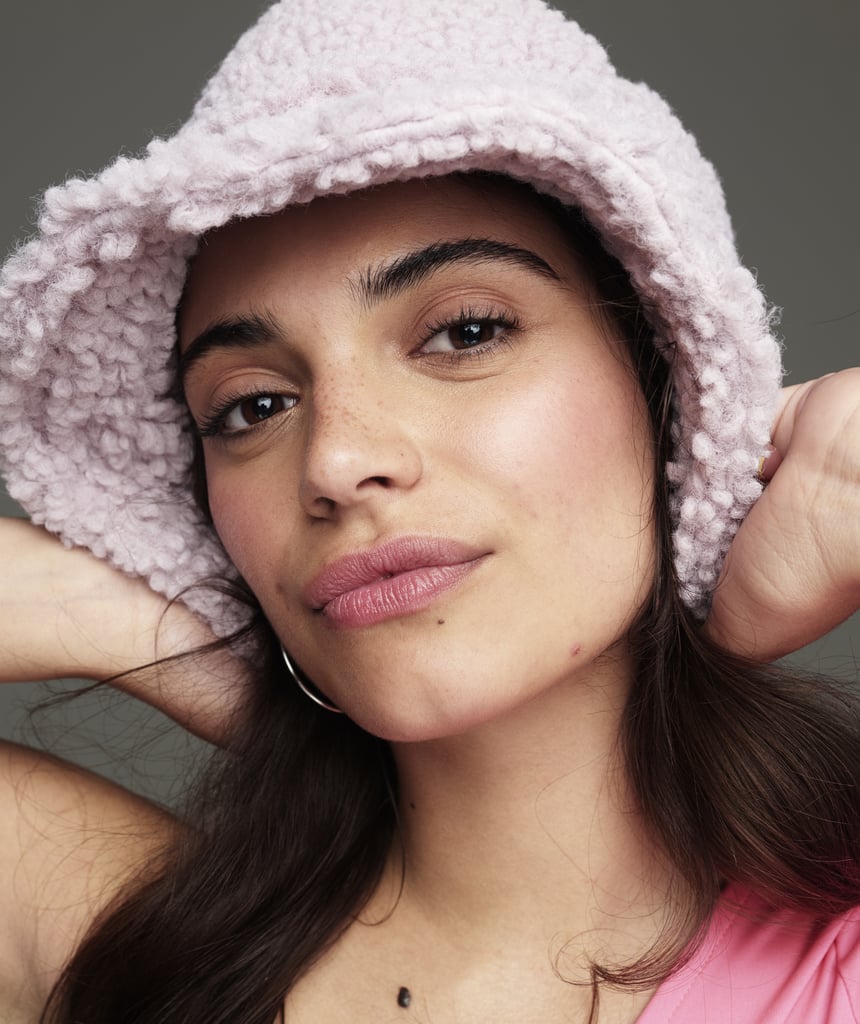Acne is a widespread, common skin concern. Everyone has experienced a breakout or two at least once in their life. Practically every beauty brand on the market makes a product to target it — be it a concealer to cover or a spot treatment to heal [1] — so why is it so hard to find acne in campaign imagery?
You would think that ads for acne-focussed products [2] would display some sort of blemish, but that's rarely the case. In the beauty industry, when a brand announces it will no longer retouch their models, it's considered a big deal — and don't get us wrong, we do commend them for it — but it really should be expected.
It's important to show examples of diverse models with real skin with pimples, and uneven skin texture, and other imperfections. It normalises all skin conditions and empowers people to feel confident and naturally beautiful without the need to hide part of themselves. Let us explain.
Why Showing Acne in Beauty Campaigns Matters
"Retouched skin in beauty ads greatly contributes to harmful and unrealistic beauty standards that still exist in the industry," Jasmine Glass, one of the founders of SPKTRM Beauty [3], told POPSUGAR. As a brand, SPKTRM Beauty launched under this ideology and has banned retouching on all models from the very start. This decision helps make its marketing materials feel more relatable and authentic, rather than unattainable, but it goes even deeper than that.
"Acne is a condition that so many people of all ages deal with, and the lack of representation of it in beauty images directly correlates to statistics that connect acne with lowered self-esteem and even depression," said Glass. "I never want people to feel like they have to hide from the world because of their acne — yet many of us do."
Acne is a condition that so many people of all ages deal with, and the lack of representation of it in beauty images directly correlates to statistics that connect acne with lowered self-esteem and even depression.
This connection between unrealistic beauty standards and low self-esteem is what lead beauty retailer and healthcare company CVS to also ban retouching on their photography, too. It is the company's goal to replace all imagery by the end of 2020 with these CVS Beauty Mark photos.
"The American Medical Association and others have said for some time that portraying unrealistic representations of beauty can lead to poor self-image, particularly in young women," said Maly Bernstein, vice president of beauty and personal care at CVS Health [4]. "That's why in 2018 we introduced the CVS Beauty Mark, a watermark which appears on imagery that is authentic and has not been digitally altered."
As a result of CVS, mass brands like Olay have also pledged to use Photoshop-free images [5] in campaign ads. A step in the right direction, to be sure.
"Acne is a part of our skin reality," said Malena Higuera, general manager of Dermablend Professional [6]. "Yet it seems to be a conversation we leave for teenagers in the classroom, while I know firsthand what it feels like to have acne in the boardroom."
As someone who has struggled with acne herself for over a decade and now runs the number-one dermatologist recommended coverage brand, Higuera knows the struggle of having acne and feels passion about being transparent with it. "I decided to take this job as my chance to help others not apologise for their skin," she said.
What We Hope to See From Brands in the Future
Embracing your skin can look different for everyone, and it's not up to a brand to decide what that looks like — but it is up to brands to empower their customers to make that decision for themselves. "What's important is to celebrate the power of choice to cover or not cover," said Higuera.
For brands that are leading the charge in making the beauty industry more unfiltered and authentic, the response from customers has been overwhelmingly supportive. "The comments I've read and messages received on our social media platforms always reaffirm that it was the right decision," said Glass. "So many people share the same sentiment: why has it taken so long for this to happen?"
The days of using fear-based marketing tactics should be behind us. Rather than promoting products by telling people they need them to look beautiful, products should be looked at as a creative way to enhance what's already there. "Today's consumer is savvier and more diverse than ever, and that inspires us to always think about how we can use our size and ability to connect with and empower the women who come through our stores each day," said Bernstein.
As a whole, the industry has a long way to go, but it's headed in the right direction thanks to brands willing to have this conversation. "The standard of perfection and exclusively youthful beauty remains deeply engrained in our society, and it will take a while to unlearn it collectively," said Glass. "I feel very confident that we can begin to encourage people to embrace their unique type of beauty and to experience beauty as a form of self-care rather than an obligation."
